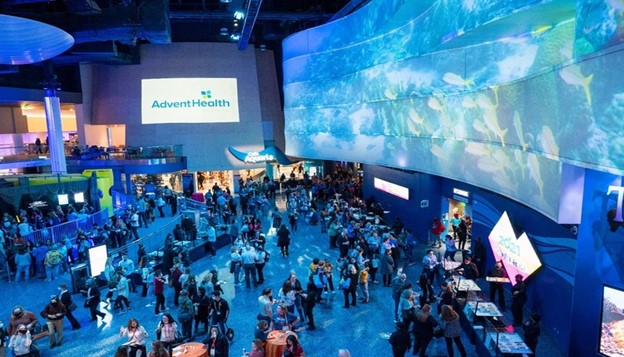Communicating for impact: The critical role of effective communication in event success

Effective communication is the linchpin that ensures success and client satisfaction. Lauren Stroud, senior manager of events at MCI USA with 7 years of industry experience, shares her insights on how clear and strategic communication can transform the event experience for clients, attendees and organizers.
1. What are the benefits of effective communication for clients when planning events?
Effective communication is essential in event planning, serving as the foundation for successful execution and stakeholder satisfaction. Here are five key benefits:
• Aligned expectations: It’s crucial to communicate to your attendees what they should expect at the event. This not only builds excitement but also informs them about what they will gain, whether it's tangible items or invaluable knowledge.
• Consistency: Regular communication keeps everyone on the same page — be it the audience or sponsors — and aligned with the mission of the event. This consistency helps in meeting event goals effectively.
• Feature highlights: Effective communication allows us to spotlight important elements of the event such as major speakers or partner-driven activities. This ensures that what excites the organizers also resonates with the audience.
• Enhanced organizer-planner relationships: Open lines of communication between the organizer and their meeting planner facilitate a more efficient realization of the event’s vision.
• Cohesion in planning: Constant communication, regardless of team size, ensures the planning process remains cohesive, making each team member more proficient in their roles.
2. Why is effective communication particularly important for event planners?
Event planners are the heart of the team — we keep the pulse steady. Our role may not be visibly prominent, but we are central to keeping everyone informed and focused. We possess crucial knowledge that needs to be shared at the right times to keep all processes on track.
3. What are some consequences of poor communication in event planning?
Poor communication can lead to many issues. For instance, it can result in assumptions that foster inconsistencies and create unnecessary challenges. Although it's possible to navigate these challenges, they tend to increase the workload and slow down progress significantly.
When communication is siloed or lacking, it can also sow confusion among all stakeholders. This can make an organization or event appear unreliable, which might deter future engagement from attendees and partners.
4. How can organizations improve their communication to better manage their events?
One key strategy is to communicate concisely and frequently. At MCI USA, we help ensure that essential information is delivered timely and succinctly. This approach helps attendees and stakeholders plan effectively and absorb information without feeling overwhelmed. Effective communication in event planning isn’t just about relaying information — it’s about crafting an experience that is cohesive, clear and engaging for every participant.
Book a demo today with Lauren Stroud or one of our strategic event management team members to learn more effective strategies that will elevate your event attendees’ experience.



Add new comment